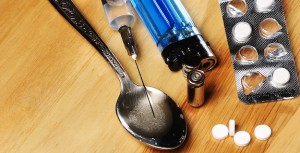
Heroin is an insidious drug, classified in the United States as a substance that is without medical value and highly addictive. Though most people know that it is dangerous, many have questions about its addictive nature and how treatment works. Here are some of the most commonly asked questions about heroin use and abuse:
How can I tell if my loved one is high on heroin?
The short-term effects of heroin use are not difficult to miss. Your loved one may:
- Act tired
- “Nod out” during conversations
- Be unable to focus or concentrate on a task
- Experience slowed breathing and heart rate
- Be nauseous or vomit
How will I know if my family member is addicted to heroin?
Addiction to heroin can happen quickly. Once a person is dependent upon the drug, he is unable to stop using without experiencing physical withdrawal symptoms that can include:
- Bone and muscle pain
- Profuse sweating
- Runny nose
- Goose bumps
- Stomach cramps, vomiting and diarrhea
- Insomnia
Psychological cravings are intense as well. A person addicted to heroin is always acutely focused on getting more heroin and staying high. Their personality and appearance may change as they no longer prioritize anything but the drug.
How does heroin affect a pregnancy? Is treatment appropriate, or should it wait until after the baby comes?
Heroin is a dangerous drug to a fetus. Without treatment, the pregnant woman may spontaneously miscarriage. However, quitting abruptly is not recommended. A doctor’s supervision and medicated detox are the preferred methods of helping a woman to stabilize in addiction and give the baby the best chance at life.
What do I do if my family member overdoses on heroin?
Call 911 immediately. Emergency medical assistance may be able to offer a medication called naloxone, which can arrest the overdose if taken in time. In some states, this medication is available to friends and families of addicts by prescription. If you are concerned that your loved one may overdose, find out more about the medication.
When your loved one is stabilized after an overdose, treatment at a professional drug rehab is the best option.
How do I get my addicted loved one into treatment if she doesn’t want to go?
It’s not always easy to convince an addicted person that treatment is necessary. An intervention can be helpful in this process.
How is heroin addiction treated?
There are a number of different methods for treating opiate dependence. Medication is an option, and therapeutic treatment is always recommended as well as long-term aftercare and follow-up to ensure that your loved one has all the resources necessary to build a new life in recovery.
What are your questions about heroin abuse and addiction? Contact us at Axis today to learn more about the treatment options available to your addicted loved one.


